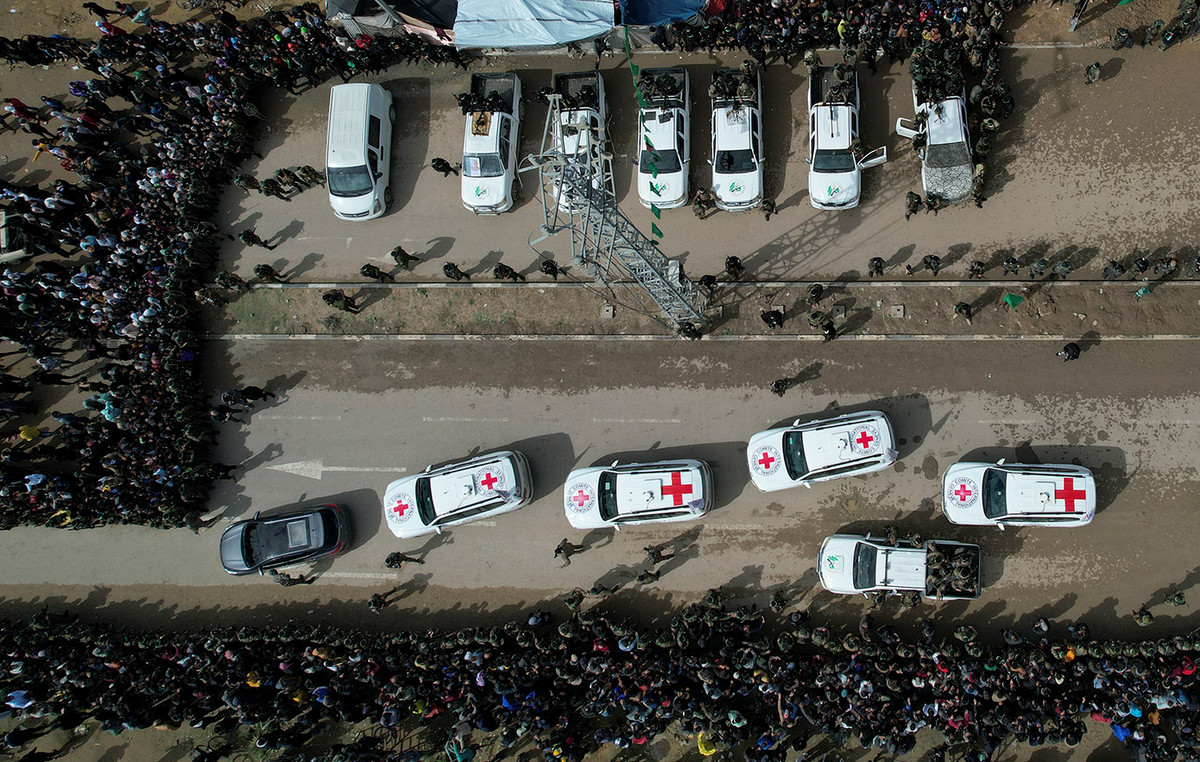THE postprandial hypoglycemia is one of the main complications of bariatric surgery which can affect up to 30% of those operated on, showed a study conducted at Harvard University in the United States.
Unlike common hypoglycemia, in which low blood sugar levels are usually associated with poor nutrition, postprandial hypoglycemia occurs after meals, causing symptoms such as sweating, tremors, weakness and even mental confusion.
The research identified the central role of serotonin (a hormone involved in mood regulation) in the development of post-bariatric hypoglycemia.
The results were released on Thursday (12) in the Journal of Clinical Investigation and, according to the authors, indicate paths for possible treatments.
“We identified that this type of hypoglycemia is associated with the dysregulation of serotonin levels in the blood, a hormone that, in addition to controlling mood, is also capable of stimulating the secretion of insulin hormones. [no pâncreas] and GLP-1 [sigla para glucagon-like peptide-1, produzido no intestino delgado em resposta à ingestão de alimentos] in the organism”, says Rafael Ferraz-Bannitz, who conducted the research during an internship abroad supported by Fapesp.
The group also received funding from the National Institutes of Health (NIH) in the United States.
“We observed that in individuals with post-bariatric hypoglycemia, serotonin levels are low when they are fasting. However, after a meal, they increase significantly, unlike patients without symptoms or people who have not undergone bariatric surgery, whose serotonin levels decrease after a meal,” adds Ferraz-Bannitz, who is currently a postdoctoral fellow at the Joslin Diabetes Center and Harvard Medical School.
According to the researcher, although the problem is common — in the United States, the country with the highest number of bariatric surgeries in the world, it is estimated that it affects up to 30% of people who undergo surgery — little was known about the mechanisms that trigger postprandial hypoglycemia.
“It is extremely debilitating; patients end up eating just one meal a day because they know they will get very sick. Many are unable to work, drive or have a minimum quality of life. And it is a problem that can affect up to 83,000 people every year in the United States alone. In Brazil, this number must also be high, as it is the second country that performs the most bariatric surgeries in the world,” the researcher emphasizes.
How it was done
The researchers analyzed 189 metabolites (compounds resulting from enzymatic reactions of metabolism) in the blood of three groups of individuals: 13 patients with post-bariatric hypoglycemia; ten who underwent surgery but had no symptoms; and eight individuals who did not undergo surgery nor had hypoglycemia.
Blood was collected when participants were fasting, 30 minutes after drinking a shake (composed of proteins, carbohydrates and lipids) and two hours after consuming the drink (the time at which patients with postprandial hypoglycemia usually show signs).
The analysis showed changes mainly in the serotonin pattern.
“For many metabolites, we noted significant differences between the group that developed hypoglycemia and those who were asymptomatic. However, the difference in serotonin levels was what caught our attention the most. Individuals with post-bariatric hypoglycemia had very low levels of serotonin during fasting. Interestingly, in response to a meal, there was a fivefold increase in the levels of this hormone in these individuals,” Ferraz-Bannitz told Agência Fapesp.
The researchers also found other important metabolic changes.
“These individuals, in the fasting state, presented decreased levels of ten amino acids, including tryptophan [precursor da serotonina]in addition to biomarkers related to diabetes. In contrast, we observed an increase in the levels of ketones, bile acids and some metabolites of the Krebs cycle [que faz parte do processo de produção de energia nas células]”, he reports.
There is a relationship between serotonin and the secretion of insulin and GLP-1. According to Ferraz-Bannitz, previous in vitro studies have already shown that serotonin is capable of stimulating the secretion of insulin in pancreatic cells (beta-pancreatic) and GLP-1 in intestinal neuroendocrine cells.
Insulin is responsible for transporting sugar from the blood to the body’s cells, where it is used as an energy source. GLP-1 is a hormone released in the presence of glucose, giving a feeling of satiety by signaling to the brain that the individual is fed.
“In this study, we demonstrated in vivo that the administration of serotonin in mice was capable of causing hypoglycemia induced by increased endogenous secretion of insulin and GLP-1,” comments the researcher.
Thus, the results suggest that the increase in serotonin after a meal, observed in individuals with post-bariatric hypoglycemia, may be a contributor to the increase in insulin secretion and, consequently, the development of hypoglycemia and symptoms such as dizziness, tremors and mental confusion.
Serotonin blocker
To better understand the role of serotonin in the development of post-bariatric hypoglycemia, tests were performed on mice.
“When serotonin was injected into the animals, their blood sugar levels dropped dramatically, leading to hypoglycemia – a condition very similar to that seen in patients. When we evaluated the mice’s plasma, we observed that the serotonin injection increased the secretion of insulin and GLP-1, which are the same hormones that were increased in individuals who developed postprandial hypoglycemia,” he says.
The researchers then decided to test, in mice, the use of serotonin antagonists as a treatment strategy.
“The use of ketanserin, a well-known drug that blocks serotonin receptor 2, proved to be very effective in the experiments. It was able to block serotonin-induced hypoglycemia in animals and promote a reduction in insulin and GLP-1 secretion. This is, therefore, a promising result, which indicates a potential therapeutic target for individuals with post-bariatric hypoglycemia,” he says.
With these results, the group coordinated by Mary-Elizabeth Patti, professor at Harvard Medical School and senior researcher at the Joslin Diabetes Center, intends to carry out new clinical studies to prove the effectiveness of this possible treatment in individuals suffering from postprandial hypoglycemia.
Although they have shown that serotonin is possibly responsible for triggering the entire hypoglycemia process in individuals who have undergone bariatric surgery, researchers still do not know what causes this difference in the hormone pattern.
“This is one of the recognized limitations of the study, as we did not have access to biopsies of the intestines of these individuals to assess the quantity and activity of serotonin-producing cells. However, one of the hypotheses we have raised is that hypoglycemia may be associated with some change in the microbiota, bile acids or other factors in the intestine – an organ that produces 90% of the body’s serotonin. Future studies, which will be conducted in Professor Patti’s laboratory, may answer this question,” says Ferraz-Bannitz.
This content was originally published in Hypoglycemia is one of the main causes of complications in bariatric surgery, says study on the CNN Brasil website.
Source: CNN Brasil
I am an experienced journalist and writer with a career in the news industry. My focus is on covering Top News stories for World Stock Market, where I provide comprehensive analysis and commentary on markets around the world. I have expertise in writing both long-form articles and shorter pieces that deliver timely, relevant updates to readers.







